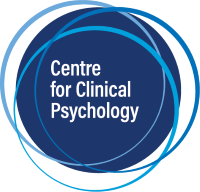There are a number of effective treatments for PTSD. However, some clients are left with residual symptoms even after successful treatment. This also appears to be associated with the common comorbidity of depression. These are important considerations for treatment and client quality of life.
Zayfert and DeViva (2004) reported of patients who no longer met PTSD diagnosis following CBT for PTSD 48% reported residual insomnia. This insomnia persisted in the absence of continuing nightmares and hypervigilance.
Lommen et al. (2016) concluded that sleep problems may reduce the speed of recovery in PTSD patients with comorbid depression. In contrast for those without comorbid depression, self-reported sleep problems did not interfere with response to trauma-focused treatment.
Lopez et al. (2017) and Lopez et al. (2019) reported greater residual sleep symptoms were predictive of smaller treatment gains.
Schnurr and Lunney (2019) reported residual hyperarousal symptoms were the most likely to remain, especially irritability/anger (60.7%) and sleep difficulties (50.9%).
Larsen and colleagues (2019) reported that distress related to trauma reminders, detachment, and insomnia were the most common residual PTSD symptoms at posttreatment. They also outlined that the most common residual symptoms of comorbid depression were self-blame, concerns about body image, and fatigue. The residual symptom of guilt was associated with believing that actions taken during the event were unjustified.
These studies indicate that clinicians should assess for remaining residual symptoms after PTSD treatment to see whether additional treatment might help make further gains. This includes even when those treatments, such as Cognitive Processing Therapy (CPT) are known to have positive effects on co-morbid depression and sleep difficulties.
References
Larsen, S. E., Fleming, C. J. E., & Resick, P. A. (2019). Residual symptoms following empirically supported treatment for PTSD. Psychological Trauma: Theory, Research, Practice, and Policy, 11(2), 207–215. https://doi.org/10.1037/tra0000384
Lommen, M. J. J., Grey, N., Clark, D. M., Wild, J., Stott, R., & Ehlers, A. (2016). Sleep and treatment outcome in posttraumatic stress disorder: results from an effectiveness study. Depression and Anxiety, 33(7), 575-583. doi:http://dx.doi.org/10.1002/da.22420
López, C.,M., Lancaster, C. L., Gros, D. F., & Acierno, R. (2017). Residual sleep problems predict reduced response to prolonged exposure among veterans with PTSD. Journal of Psychopathology and Behavioral Assessment, 39(4), 755-763. doi:http://dx.doi.org/10.1007/s10862-017-9618-6
López, C.,M., Lancaster, C. L., Wilkerson, A., Gros, D. F., Ruggiero, K. J., & Acierno, R. (2019). Residual insomnia and nightmares postintervention symptom reduction among veterans receiving treatment for comorbid PTSD and depressive symptoms. Behavior Therapy, 50(5), 910-923. doi:http://dx.doi.org/10.1016/j.beth.2019.01.006
Schnurr, P. P., & Lunney, C. A. (2019). Residual symptoms following prolonged exposure and present‐centered therapy for PTSD in female veterans and soldiers. Depression and Anxiety, 36(2), 162-169. doi:http://dx.doi.org/10.1002/da.22871
Zayfert, C., & DeViva, J. C. (2004). Residual insomnia following cognitive behavioral therapy for PTSD. Journal of Traumatic Stress, 17(1), 69-73. doi:http://dx.doi.org/10.1023/B:JOTS.0000014679.31799.e7



